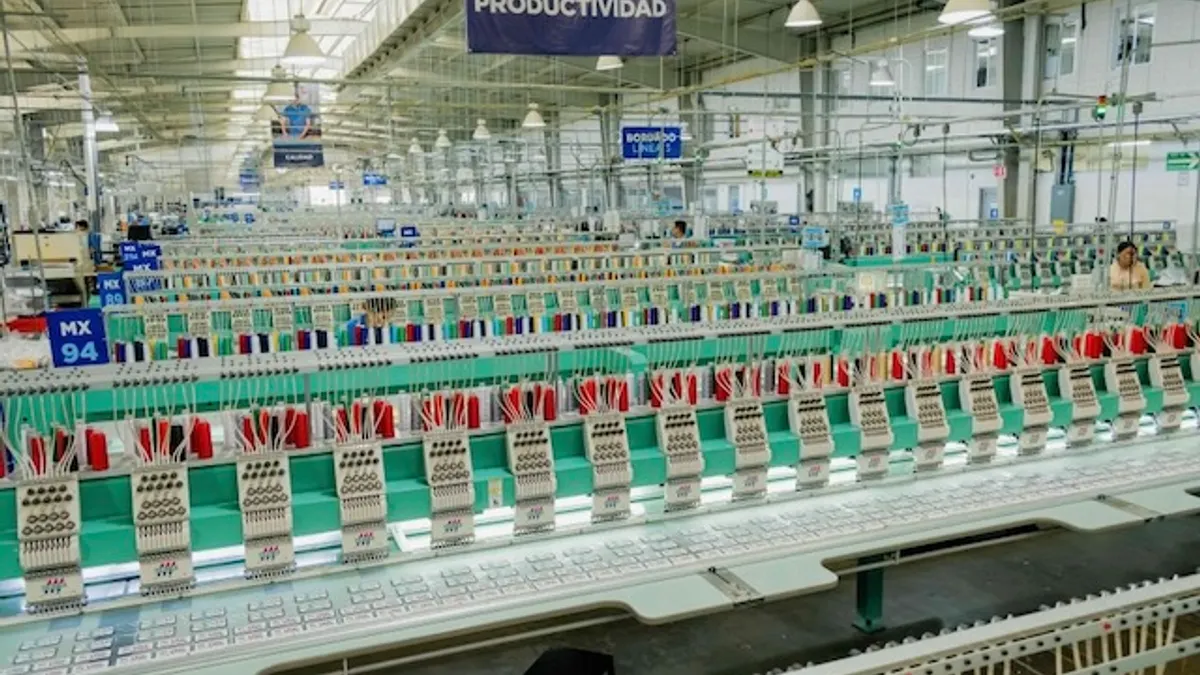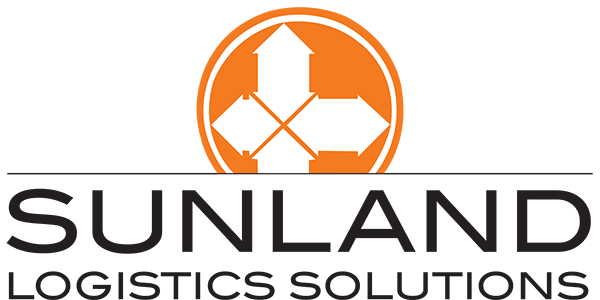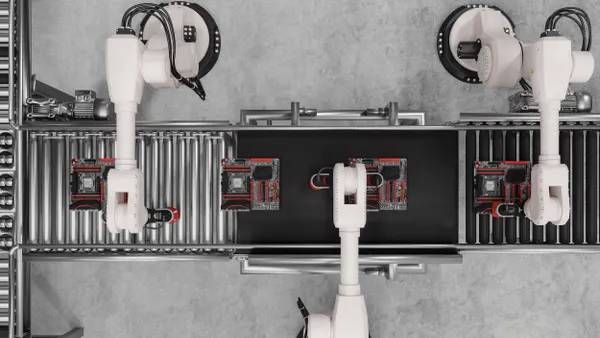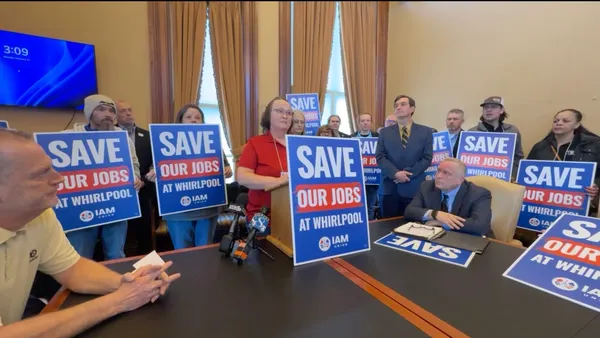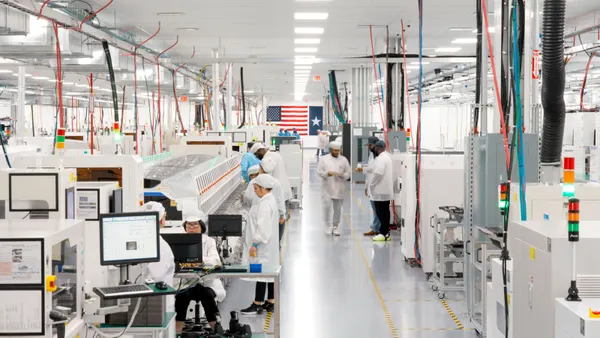World Emblem, a company that manufactures emblems, patches and labels for customers such as Levi’s and New Era, is quickly shifting its production footprint closer to the United States in response to new tariffs from the Trump administration.
When President Donald Trump issued fresh levies targeting Canada, Mexico and China earlier this year, it was a shock to the company’s Mexico-dependent manufacturing operations. The unprecedented upheaval in trade policy sparked a reevaluation that led the company to reshore production to the U.S. and look to the Dominican Republic as a tariff defense.
Founded in 1993, World Emblem ships nearly 250 million emblems, patches and labels a year for garments and non-fabric items from roughly 1 million square feet of manufacturing and office space in the U.S., Europe, Canada and Mexico. The company’s largest factory is a 400,000-square-foot facility with 900 employees that has operated in the central Mexico state of Aguascalientes for more than 20 years, President and CEO Randy Carr told Supply Chain Dive.
"The minute the Trump administration took over and started leaning on the [U.S.-Mexico-Canada Agreement], we kind of knew we had to diversify," Carr said.
To reduce dependence on Mexico, World Emblem began construction of a 75,000-square-foot plant in the Dominican Republic in September, Carr said. The company plans to move into the facility in January, giving World Emblem a presence in a free-trade zone country that exports less to the U.S. than it imports.
To reduce manufacturing in China, the company expanded its factory footprint in Houston from 100,000 square feet to 230,000 square feet, Carr said. World Emblem plans to further expand its U.S. footprint next year by increasing its Norcross, Georgia, manufacturing operation from 80,000 sqaure feet to 115,000 square feet. The company also has factories in Toronto and Upland, California.
World Emblem's exposure to China grew in September 2024 with the acquisition of Hero's Pride, a Southern California-based maker of patches and badges for law enforcement, public safety and military customers in the U.S. and Canada. Hero's Pride manufactured all its products in China, and World Emblem has had to pay tariffs ranging from $2.5 million to $3 million this year as a result, Carr said.
"We're in the middle, right now, of moving all that stuff to Mexico," Carr said. Eventually, the company will split that capacity with its facility in the Dominican Republic.
How much World Emblem manufactures in each of the two countries will depend on two factors: the review of the USMCA scheduled for next year and inflation in Mexico, due to its popularity as a China alternative for manufacturing, Carr said. He believes the Trump administration may impose tariffs on goods currently exempted under the USMCA.
"Not only do we have inflationary risk now, you have the risk of USMCA being upended, which I think would be disastrous for the U.S. economy," Carr said.
World Emblem expects its factory reshuffling, particularly the move to the Dominican Republic, to reduce its tariff exposure as it aims to fulfill orders in less than a week for customers such as New Era, which supplies the official caps for Major League Baseball, the National Football League and the National Basketball Association.
Shipping orders to customers quickly, sometimes as soon as the next day, remains a key differentiator for World Emblem against its rivals, particularly those based in China, Carr said.
"I think we're just putting ourselves in a good position over the next decade," he said.



